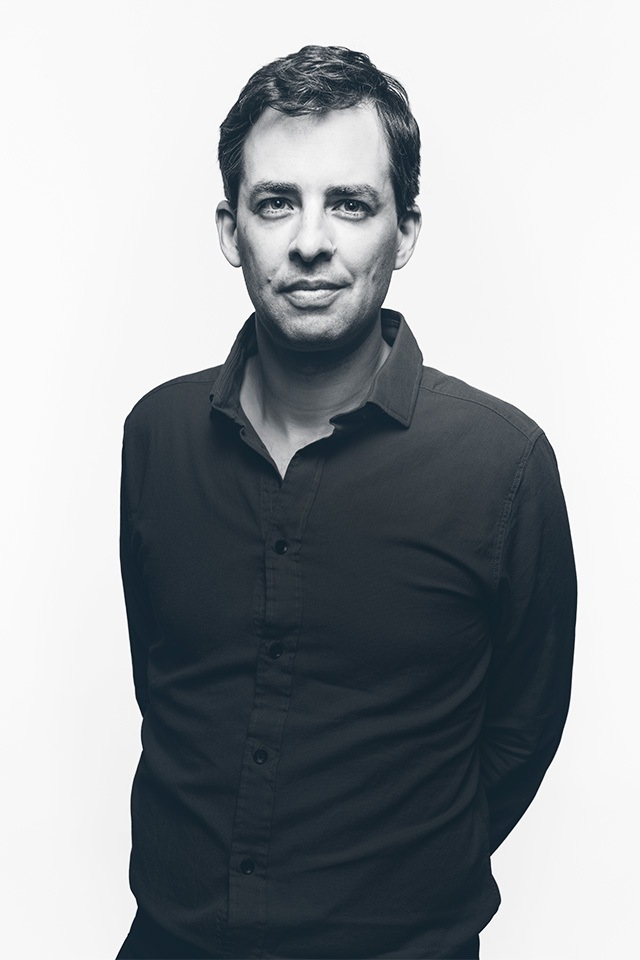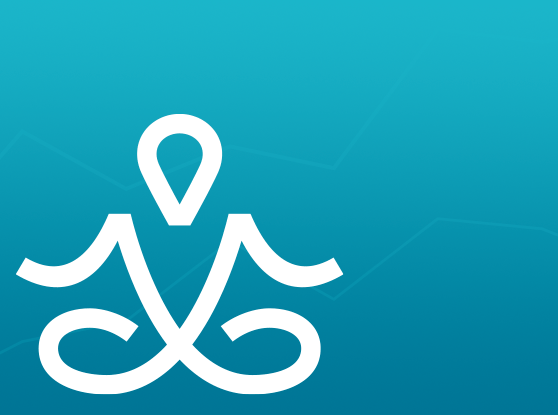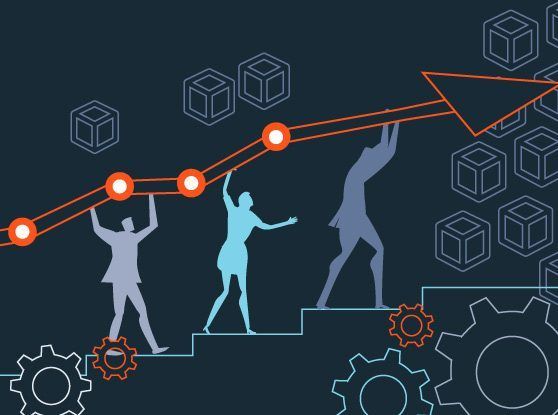
Insight's Growth Gurus series showcases inspiring leaders from our portfolio of growth-stage software and internet companies. In this interview, Insight's Managing Director, Lonne Jaffe, speaks to Mario Ciabarra, Founder & CEO of Quantum Metric.
This is Lonne Jaffe, Managing Director at Insight Partners, today I'm talking with Mario Ciabarra, the Founder and CEO of Colorado based Quantum Metric. Insight Partners is a growth equity fund that's raised more than $23 billion and invested in 300+ high growth technology and software companies. Earlier this week, Insight announced that we would be leading the $25M Series A investment in Quantum Metric, which we're very excited about.
At Insight, we're always looking to invest in entrepreneurs, like Mario, who have built rapidly growing businesses and have created products that their customers love. And today we're going to be talking a little bit about Mario's background and what Quantum Metric is going to be using the funds for. So, Mario, thanks for being here today.
To kick things off, can you tell us the story of how you got your start? Did you always want to be an entrepreneur?
It's an open-ended question, so I'm going to go back really far. I think if you look back at a lot of different entrepreneurs they'll share the same story. My father grew up in Italy. I think when you get a first-generation entrepreneur, there's a lot of similarities amongst them. Around age six or seven you could tell that this young boy was going to grow up and be an entrepreneur. It was really just a natural connection with: here's a need, I'm going to go fill it.
I started my first real startup at age 15. It was a very successful failure.
I had wishful thinking in my first startup. It was direct marketing, selling a product through direct marketing and I knew I needed just a 1.1% response rate to succeed. I thought for sure I'd get 1.1%. How hard could that be? And I think we ended up with about .9% success and unfortunately that .2% gap is huge. What I learned was stay grounded. What I took from that early adventure was, hope for the best, it’s awesome to have high spirits, but expect the worst. How will you handle that? What will you do? And so, it was a great learning lesson.
I always wanted to be an entrepreneur. The path I went through career-wise was starting in consulting with PwC, a couple of great internships -- starting off in the industry and then falling back in love with the idea of being an entrepreneur.
You've built a couple of other ventures already. Can you tell us a little bit about those experiences, building and scaling companies?
I talk to a lot of budding and hopeful entrepreneurs and one of the things I share with them first and foremost is when you feel the pain of a challenge, of a problem and you want to go solve it for yourself, I think that puts you in the right seat to be successful. Having felt the pain while consulting in the early years of J2EE, Java Enterprise Edition, I felt the pain that was affecting people from an engineering perspective. I honestly saw people pointing fingers, the developers pointing fingers at the database, the database folks pointing fingers at the network and it was a circle that continued over and over, and I just saw that there's got to be a way to do this better. I ended up moving here to Colorado and create a product that could solve that problem. It was really a great story -- from start to finish, it was just eleven months. We released a product about four months in -- when I say we, it was to be fully transparent that it was a company of one, just myself -- and it just took off. The first day I remember very clearly, hundreds of downloads turned into thousands of downloads. It was really exciting process just to watch my idea come to fruition and people fall in love with it. We had some great success in the next upcoming months, winning over enterprise clients, and then it was acquired by Compuware. So, great experience.
I thought I was retiring after that. Everyone else laughed at me because they knew me better than I did I guess. I traveled the world and had a great experience with my wife. We travelled the world for six months. We visited twenty-seven countries, really got a great feel for the cultures of many of these countries by staying in hostels. It was really just a fun time of life before kids. When I came back, I woke up and realized my passion is what I had already been doing. It was creating companies with leading technology.
I ended up getting involved in the iPhone jailbreak space -- which is being able to install apps of your choice versus ones that followed the arbitrary rules that Apple had set up. A great example is, I turned the iPhone into a Wi-Fi hotspot eighteen months before Apple did and created a lock screen and notification center five years before Apple did. I had a great time just innovating on the iPhone. I ended up creating an iPhone App Store because I saw this other need: I was creating apps and selling them and so were other individuals and it was tedious. Looking at Apple's model, it seemed like a great way to succeed, which is to handle licensing, purchases, distribution and advertising for developers and to create a platform for independent developers to succeed. And that app store took off. We had a million active users a day. It was kind of fun to have that much engagement from the community. I ended up selling that business to our competitor and then in 2011. It was kind of was like a peak moment of that space, and you could feel the peak.
What problem is Quantum Metrics solving?
I can describe the thirty second elevator pitch: it really comes down to the importance of having a great digital experience. Oftentimes I ask people; have you ever gone to a website, tried to interact or transact with the website, and walked away with a bad experience? I haven't found someone that says no to that question.
Ask yourself how many other people have had that poor experience on that site that same day, and what kind of impact is that bad experience having to the business? It could be in financial in terms of transactions, or it could just be brand damage. The reality is, as a society we're getting much less patient with problems on websites. There's a bar that's been set by companies like Amazon. There's a way to deliver a great experience all the time, and anyone that does anything less than that is just not good enough. When you are the business that's delivering these poor experiences, how do you find out about it? And that's really what got to me. I think if we look at my first experience with the company that did the J2EE performance monitoring, it was really about uncovering where are the challenges inside the engineering team. From database to network to app servers.
Once you understand what's happening within engineering, you need a way to communicate across the entire organization, whether it's engineering, product and marketing. How do they communicate where their biggest issues are or where their biggest opportunities are, in terms of delivering their best on digital? And giving a platform and visibility across teams. This is what really got me excited -- being able to align the entire organization on where is that lowest hanging fruit? What can we do that will make the biggest impact for the organization?
You started Quantum Metric in Colorado. Can you talk a little bit about your perspective on the Colorado Tech scene and what it's like to build a very rapidly growing business in Colorado?
I was actually on a flight to Chicago the other day and I was sitting next to a CEO that has a fantastically scaling company here in Colorado, out in Denver. It was our first time meeting and she asked me where our start-up was located. I told her that it is in Monument, Colorado. She gasped – like, “really? that's way south of Denver.” I explained to her that there are incredible people throughout the country in any city. It's not a Silicon Valley-type environment, but I think that if you look in most cities across the US, there is incredible talent -- I almost want to say the word hidden -- a couple here and a couple there. The challenge is pulling them all into the same room and getting them to all row in the same direction.
And we've done that here at Quantum, and I think the success that we've had, the traction that we had, obviously speaks to that. I also believe that starting this company in Silicon Valley is much more difficult than starting in Colorado, to be honest. There’re two major factors, the obvious one is cost, it's just much more expensive in the San Francisco Bay Area, and the other one is there is a lot of demand for the talent in the Bay Area. One of the ways to offset the demand is higher salaries. There are people offering higher and higher salaries and yet still experiencing churn of employees in the Bay Area, and it is just so taxing. I've spoken with a lot of leaders in the Bay area and it's a major concern for them.
The fundraising process can take up a huge amount of time and it can be a distraction for the whole team. What led to your decision to fundraise? Can you talk a little bit about how you kicked off the process?
This is a fantastic win, to partner with Insight, but there were some battles that were lost along the way. We had been pursued by a great firm for my other start-up and so we talked to them when I first got started three years ago. I figured, let's see how this resonates with venture capital and see if this works. And we went out and had this great pitch but didn’t have a way forward since we were so early.
About a year ago, I decided why not do another round on Sand Hill Road and elsewhere and see if what we're doing and our success and our traction to date resonates. We did ten to twelve pitches and didn't really find the right home. I think we could have gotten a deal done at that stage, but it wasn't going to be on the terms we wanted.
And then we had kind of a fun event happen where we actually ended up having the founder of our largest competitor join our advisory board. He had sold his company and he joined us and was a great addition to our leadership. He recommended that I meet with one of the board members that he had. And it was love at first sight. It was just a great connection. It wasn't about money, it was finding a great mentor and a great partner.
This is what we found in our initial seed investment with Bain Capital Ventures, with Salil Deshpande. A year later, we had proven success and we had gotten some incredible Fortune 100 names on board with Quantum. Now we finally had this realization that we need to pour fuel on the fire. That kind of hit us in about March, and we realized that it's time to search for a great partner for a large round.
Like you mentioned earlier on, raising a round is a distraction. We have a small team and to take one to two team members for a few weeks, it's a big cost for us, especially at the leadership level. We didn't want to go and meet with fifty investors. We really wanted to qualify who's going to be a great partner with us. Serendipitously, we ran into Insight at a trade show and we began a conversation. It was very fluid, comfortable, and you had that same feeling I had when I met at Bain Capital Ventures. Like, wow, this is a good organization that we're going to enjoy working with. Just really bright, intelligent people, which I think is important, and a team that was going to help us, give us guidance and support. At the time we were narrowing down to our final three investors that we would consider moving forward with.
What we found with Insight was the honeymoon phase was perfect. I think a lot of people talk about this as like it's a marriage, there's a partnership and we're looking at being together for the next five to seven years. Are these folks that we want on our team.
Just like we would hire someone, are these people that we would want alongside us. With everyone that we met at Insight, it was, “Wow, this is just going to be fun.”
We have a really great internal team and leadership, and just like them we felt like the folks at Insight are people that we would want to work with day in and day out. It was just, this is going to be fun. One more thing: we asked to speak to a couple of references, a couple of other entrepreneurs who had taken investments from these final three investors. And the one that struck me the most was the one who had happened to either take investments from the other venture capital firms that we had spoken with or were considering taking investments from them – and that entrepreneur was “hands down, Insight is number one.” And it was really great to hear from another entrepreneur that this was the best path forward for us. It's very believable when it's not just the venture capitalist saying we're the best.
You're giving a meaningful equity stake in your business to an investor, so it's nice if they can be helpful and are a group of people that you really want to work with. That’s a really good way of thinking about it. Let's talk a little bit about how you are going to be using investment to evolve the product. How you plan to leverage the investment to add more capabilities.
Initially, when the questions got complex or involved large amounts of data, in some of our largest customers, it was starting to struggle. It was starting to be like, oh, this is a five second response time and then a ten second, and then a thirty second, and then a minute. If you have fifty users logged in, who knows how long it will take. The analytics platform initially became a bottleneck for our success. And so we invested all of 2017 our petabyte scale analytics platform. We spent months exploring technologies, investing and designing, and then throwing away options that didn’t work. We then fell in love with Google BigQuery. It's a petabyte scale database that was amazing. There was a lot of work to get done to integrate both a real time database and BigQuery and merge the results and have that data set make sense. We invested heavily in that and we also heavily invested in security and privacy to really lead the market in GDPR compliance. Privacy and security were so important to us. We invested heavily in that and it really transformed our business. We had built a petabyte scale analytics platform that could enable our end users to ask many different kinds of questions and get those answers quickly.
And when we did all that, and had this secure petabyte scale analytics platform, we started realizing that this platform could be a “home” for our end users. The platform that was more intuitive, easier to use, more performant and had a higher bar for security and privacy than any of the other tools that they were using. They started wanting to migrate a lot of that other critical business information into Quantum, because it's just easier to use one tool and not continue to switch between tools. They had different products like Voice of Customer, their A/B testing tools, etc. -- and while they're still using those tools, of course, they're pulling that data into Quantum, and using Quantum as their base of operations for helping them make decisions about what would be best for their business. That was a big upgrade for our product. And we’re continuing to invest in all of this.
We have also announced a number of new fantastic partnerships with leading enterprise SaaS software businesses that help to enable great digital experiences. We've announced partnerships with Optimizely, with True Fit, and a number of other great products out there. We’re going to be continuing to extend those integrations and looking at adjacent markets where our customers are asking us to help solve problems. In the next twelve months you're going to see some other great announcements.
We've also really have come to understand various best practices for digital operators. We've been working with so many great digital organizations, that have gone through digital transformations. Some of our mid-market customers are just now starting on that journey. We’re operationalizing the best practices we've learned and putting them into the product. We're investing a lot in product over the next six to twelve months to bring those best practices to customers that are earlier in the journey. We have some fantastic announcements coming out as early as two weeks from now. Beyond products, there is a tremendous amount of growth in our team and leadership.
I'm excited to announce our first leader in EMEA, and we’ll be investing more in international expansion. We have quite a number of great international clients that we've been servicing already, we have client success and solutions engineers already deployed in Europe, and we have some great clients in Asia as well. But investing in that international expansion is important for us over the next twelve to eighteen months.
We've had such great success at bringing on large clients that have invested in us, but we’ve focused much of our historical spending on engineers and product, and I think we have kind of short changed our marketing department, so with this new investment we'll see a lot more coming out of marketing to make sure that we have awareness in a market around some of the things that we are solving uniquely.
When you're creating a category like Quantum Metric is, marketing becomes a very important aspect of the storytelling that helps the customers realize how much they need the product and will benefit from it.
Yeah, this was something that I've learned about along the way. I think all great entrepreneurs are constantly learning -- I think if I could go back, I think investing a little bit more in category design, how we could bring our differentiated message to the market, would have been good. So, I'm excited with this investment to bringing on great partners from Insight to help us fuel that fire and bring that story to market.
That's great. We're really excited as well. We're always looking for companies with fantastic talent and amazing products, that are scaling out and can benefit from all of the infrastructure that Insight has available. Really looking forward to working with you. Any last advice for aspiring entrepreneurs who might be listening?
First, people talk about that we're in the age of product, and I would say absolutely we are. I think if you look at the core of what we've done here at Quantum, it has been building a product-first company. The best products don't always win, so investing in sales and marketing is also very important, but you need to figure out the right timing.
Second, I would say to entrepreneurs going through the fundraising process, there is a lot of glamour to the idea of being funded, and I'm going through that this week, and it's a really exciting week for us. Just the attention and spotlight. It's definitely a pleasure to get the attention and spotlight, but that's not the win that you get out of being funded, nor is it necessarily the money. It's getting great partners that you get to go on a multi-year journey with – really spend the time to figure out: is this going to be a great fit? I think I've seen so many cases where the money was the goal, and I think that's the wrong goal. I think that's one great piece of advice to share.
A third piece of advice is to figure out your core values. I love intelligence, and I love working with people smarter than me.It is such a pleasure, but I would tell you, working with someone that's passionate and persistent is even more important than intelligence. And lastly, integrity: I've worked with a couple of people that just weren't fully honest and they weren’t people I wouldn't want to work with again. Those three characteristics -- passion, persistence and integrity -- make for an incredible team member for us. I think finding the cultural attributes that are most important to you, early on in your start-up, just paves the way, because everyone's aligned and when we're going on and hiring sixty people over the next six months, we're going to be judging on those three characteristics. Of course, there are other attributes that we need for people to succeed, experience, thoughtful leadership, etc. But for us it is those three values that are core, and I think finding those values for yourself early on in your start-up are really critical, not for the sake of culture, but because it really defines the team and I think it defines what kind of leadership and environment that you'll provide.
That culture focus becomes even more important as you start scaling out internationally, and it's really great that you've been thinking about that early. Thanks for taking us through your story. Really excited to work with you.
Thank you Lonne. Looking forward to the upcoming months and getting excited to work with the entire Insight team, so thank you.
Growth Gurus
Listen to other interviews with inspiring leaders from Insight Partners' portfolio!
LISTEN










